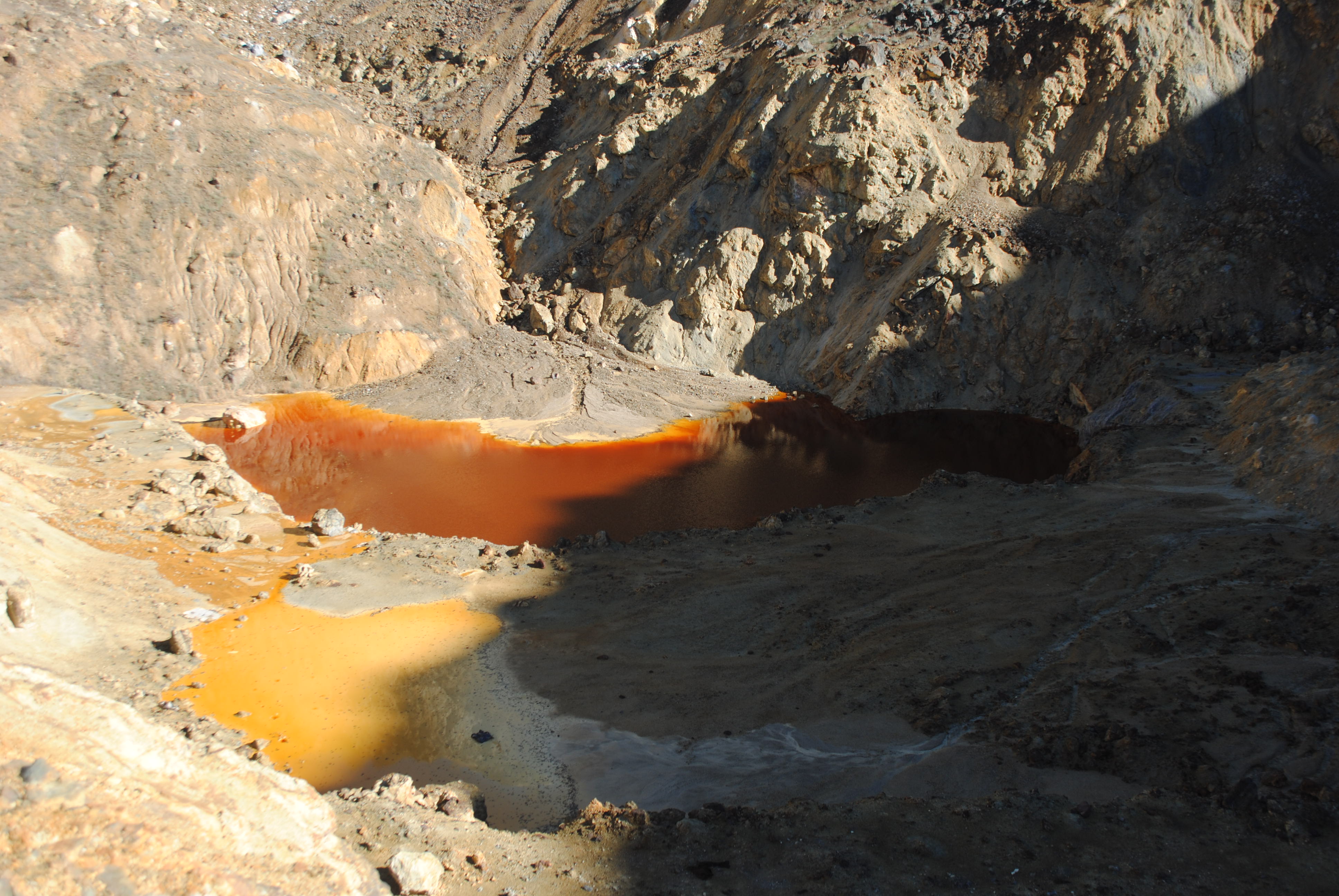In this week’s issue, we published the English translation of a recent opinion piece, authored by former advisor to Armenia’s Prime Minister, Igor Zargaryan, who has recently formed a new political party, National Agenda. In the article, which has been shared across numerous local publications, Zargaryan outlines his vision of what economic success could look like for Armenia, and critiques recent calls by Prime Minister Nikol Pashinyan for “economic revolution.”
Pashinyan is in an unenviable position at this moment. His calls for change, or “revolution,” in the economic realm are becoming increasingly urgent because his political control, which depends on a hopeful and impatient populous, is at stake. He led the country through a social revolution; citizens have high hopes he will now improve their economic dispositions, and quickly. It’s no big surprise, then, that Pashinyan would—as have many others before him in similar positions—choose the fast track towards economic development: the neo-liberal track. His revolution so far involves introducing a flat tax to all citizens, cutting down on regulations and seducing wealthy foreign investors to ‘get rich’ in Armenia.
I agree that Armenia needs an economic revolution—but only because I believe the rest of the world needs one far more desperately.
This was not exactly the revolution I had in mind for Armenia’s economy. Largely because this approach is rarely, if ever, a good idea in the long-run (which is why it’s so often employed in representative democracies that depend on short-term, elected positions of power—one of the great downsides of modern electoral democracy).
A critique of Pashinyan’s approach to economic development is certainly in place. But unfortunately, Zargarian turns out to be yet another critic not well-suited to provide one. Instead of critiquing Pashinyan’s actual policies, he focuses his energies onto critiquing semantics, namely the prime minister’s improper use of the term “revolution.” Armenia, Zargaryan argues, is already on a good track. Citing an existing “industrial policy,” he looks to the burgeoning wine industry’s success as good evidence for why any revolution Armenia embarks should not undermine the good work that’s already been done. But like so many others, Zargarian misses the mark nearly entirely.
Whatever you want to call it, the idea that economic change must come to Armenia is, at this point, quite uncontested by most. The real question is not what we should call that change; it’s what kind of change it will be.
Unlike Zargarian, I agree that Armenia needs an economic revolution—but only because I believe the rest of the world needs one far more desperately. We are all operating as a part of a global economy, which is far more flawed outside Armenia than inside of it. In fact, there’s a lot developed countries could learn from tinier, less developed nations like Armenia, whose per capita carbon emissions are over eight times lower than that of the United States (according to a 2014 report from The World Bank). From a 10,000 foot view, we’re facing unprecedented danger to our natural environment. As Jostein Gaarder wrote in 2004, “we are eating into a capital that we really ought to have repaid with interest.” Despite calls for reform, carbon emissions are expected to continue rising. And yet, somehow, despite these sobering statistics, the economies of developed nations, like the U.S. continue to grow. The “self-regulating market” is not solving these problems for us. In fact, in most cases, they’re exacerbating them. (Just look at the U.S.’s pitiful attempts to discontinue the harmful distribution of plastic bags in the face of powerful corporate lobbies—and that’s just a small portion of the garbage crisis.)
What, I ask, is “the economy” measuring, if not the health of the natural and cultural ecosystems which enable it to exist?
What is “the economy” measuring, if not the health of the natural and cultural ecosystems which enable it to exist?
In an ideal world, countries who wished to could opt out from such a broken system. But we are far from living in an ideal world, and little countries, unfortunately, cannot afford to opt out. They cannot go it alone, even if they wanted to.
At the end of the day, who are any of us to tell unskilled laborers in an Armenian village, whose indigenous trades and lifestyles were dismantled by Soviet industrialization, to forego paid work at a destructive operation like a mine? Even if that mine is working against their own longterm interests, would any of us behave differently if we needed to feed our families?
But conceding to the reality is a far cry from accepting it as a good solution. We can and should still condemn an economy that forces individuals into situations like these—even if we have to work within it for the time being. We can’t afford to be shy about admitting its profound cultural and environmental shortcomings. We must voice the need for change, loudly and often. Because the reality is that most countries, including Armenia, are not benefiting from the absentee economy that emerges with large-scale foreign investment; rather, they are prisoners to an abusive system.

Living in Armenia, I saw what real poverty looked like; and that poverty was not just to be found in the crumbling cement facades of Soviet-era socialist apartment buildings. Real poverty can be found in the mind-numbing cultural and environmental void created by an industrial economy, which privileges corporations over communities, and whose growth and scale is both ignorant and blind, not just to the laws of nature, but to the laws of human nature.
Author’s Note 02/22/2018: The original version of this article stated that Igor Zargarian is a co-founder of the organization Birthright Armenia, which was incorrect. He is a co-founder of the organization Repat Armenia, the purpose of which is to help Armenian Diasporan repatriates find work and integrate into Armenia society. The final paragraph in this article elaborated on my experience as a volunteer with Birthright Armenia in 2013, but it has since been removed as it was no longer relevant.



In his 2012 book “Why Nations Fail” Daron Acemoglu names one exemplary – model country: Botswana! But do you see people risking their lives on unsafe boats trying to go live in Botswana?
People vote with their feet.
PM Nikol Pashinyan is only promising a “Երջանիկ Հայաստան”. I am sure he knows that we cannot have a prosperous, consumer society, when we have one of the highest per-capita defence-spending in the world. Besides, a consumer-society leads to environmental degradation.
Will PM Pashinyan be able to lead Armenia towards a “happy society”? One factor he can count on is that Armenia also has one of the highest ethnically-religiously-linguistically homogeneous populations of any nation-state in the world.
Can we build a society of caring for one another and for our environment? A society of mutual respect? I believe we can, but it will take time.
“Unlike Zargarian, I agree that Armenia needs an economic revolution—but only because I believe the rest of the world needs one far more desperately.”
I cannot agree more with this. Let’s say a small country like Armenia decides to impose a progressive tax system. The problem today is that, given global capitalism, the capital will simply move out of the country and go where it can exploit more freely. I agree that the solution lies at the level of global thinking, cooperation between transnational entities. With the growing threats posed from (1) ecology, our shared natural substance, (2) advancements in biogenetics, the potential to manipulate our genetic inheritance, (3) intellectual property, and (4) new forms of apartheid, it is clear that we can no longer leave these just to the market or the state; something larger is needed. The space of the ‘commons’ is today under threat
“Living in Armenia, I saw what real poverty looked like; and that poverty was not just to be found in the crumbling cement facades of Soviet-era socialist apartment buildings. Real poverty can be found in the mind-numbing cultural and environmental void created by an industrial economy, which privileges corporations over communities”
Do you really think that poverty in Armenia is caused by not caring about the environment? I will leave out what you call “cultural void” for now…
What about corruption, underdevelopment, economic blockade and almost non-existent public services?
How does the “poisonous mining tailing” in your picture actually contribute to the poverty in Kapan?